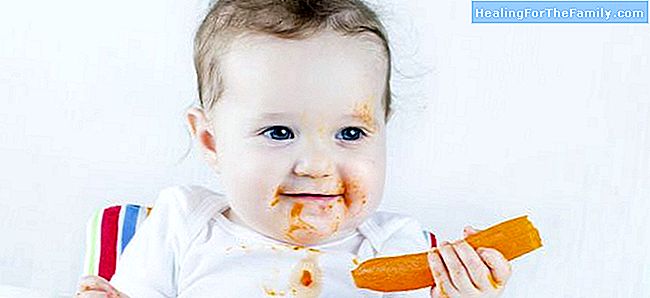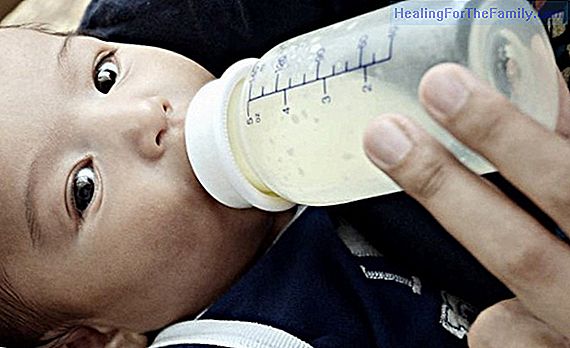The vegetarian diet during childhood
A well-planned vegetarian diet, in addition to meeting the nutritional needs may have some extra benefits such as high fiber intake and low fat. However, the contribution of some vitamins and minerals can be compromised. In the lacto-ovo-vegetarian, ovo-vegetarian or lacto-vegetarian diet neither me
A well-planned vegetarian diet, in addition to meeting the nutritional needs may have some extra benefits such as high fiber intake and low fat. However, the contribution of some vitamins and minerals can be compromised.
In the lacto-ovo-vegetarian, ovo-vegetarian or lacto-vegetarian diet neither meat nor fish are consumed, but milk and eggs or one of both, while in the vegan or strict vegetarian, only products of origin are consumed vegetable. Some people simply eliminate red meat but continue to consume chicken or fish.
Vegetarian babies and babies

Until 6 months, breast milk is the ideal food for the baby, since it covers all their needs. If the mother's diet is not supplemented with vitamin B12, the infant should take supplements, as well as vitamin D, depending on the country, season and skin tone. Vegan and ovo-vegetarian infants fed formula usually drink adapted and enriched soy milk, since milk is not included in their diet. This formula of adapted soy can sometimes cause allergies, being necessary to look for other alternatives, like the elaborated one with rice.
After 6 months, once complementary feeding is introduced, milk, maternal or artificial, should continue to be the basis of the baby's diet. The introduction of iron-fortified foods is tremendously important at this time, since the iron reserves of the infant are usually low, and, in addition, iron from foods of vegetable origin is absorbed with greater difficulty than heme iron. It is also important to take into account the protein intake, trying to include high biological value protein, such as eggs and dairy products. In the case of strict vegetarians, they should include in their diet appropriate amounts of tofu and other soy derivatives, as well as other legumes, nuts and seeds to achieve an optimal protein intake.
Zinc is another mineral that can be deficient in vegetarian babies. It can be obtained from nuts and seeds, but they are not recommended until a certain age, so fortified foods are usually used to ensure the necessary contribution.
When milk ceases to be the baby's main food, it is important that the foods offered have a high density of nutrients. For vegan children, obtaining sufficient energy only from foods of vegetable origin can mean rations of vegetables too large for their small stomachs por, so ensuring the correct caloric intake can be a difficult challenge to achieve.Vegetarian or vegan diet in childhood
In the case of children and adolescents, the ovo-lacto-vegetarian diet seems the most appropriate option, given the high nutritional needs at this stage of growth. A vegetarian diet may have deficiencies, especially zinc, iron and vitamins D and B12. However, eliminating red meat from the adolescent's diet offers a multitude of advantages, especially at this stage in which there is usually a rejection of fruits and vegetables.
This type of diet establishes some very healthy habits that will remain until adulthood
, especially if they have been followed since childhood. On the other hand, it is advisable to be attentive to the adolescent vegetarian, since, following a restrictive diet may not provide sufficient caloric content, and, in the case of eating disorders, vegetarianism may even disguise the symptoms and hinder their diagnosis.Well thought out, an ovo-lacto-vegetarian diet is not only a healthy alternative but balanced for all ages.












